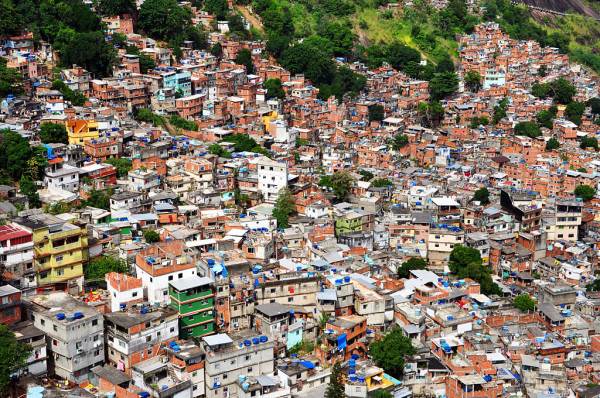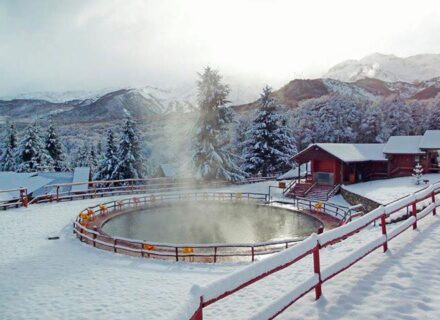Brazil is a country of very visible disparity. In other areas of the world, the poor are hidden away, driven out of the cities. In Brazil though, the poor live side to side with the rich. A single double wide freeway can separate a high-end, international designer filled shopping mall from a poverty and crime filled favela.
A favela, for those that don’t know, is the term for the neighborhoods that began to spring up around major Brazilian cities as poor farmers and rural families moved to the cities looking for work. Favelas start as illegal communities, with homes often thrown together with scraps and items salvaged from the trash. If not quickly forced out by the police or other government agencies, the favelas develop into full communities as the homes and lifestyles of the people there slowly improve. In the best cases, the government finally accepts the community and comes in to install proper sanitation, electricity, and water systems.
In Rio alone there are around 950 favelas that house up to 20% of the city’s population. Favelas are where the poor and working class live and traditionally have been very off limits to foreigners. Crime in these communities is high and often linked to the drug and weapons trade. Outsiders are usually viewed with suspicion and not welcomed. But for a few Brazilian residents, exposing the favelas has become a lifelong career. The favelas are more than the crime and poverty one sees on the surface. In an effort to break down the barriers that so strictly divide the rich and the poor areas of the cities of Brazil, a new type of tourism has developed…
Favela Tours

Just google the term and you’ll find more than a dozen companies in Rio and other major Brazilian cities offering “tours” of the favelas. These tours aim to show travelers a different side to Brazil and to help visitors develop a deeper understanding of Brazilian culture, its communities, and society.
Tours are usually conducted with small groups who are shown around a local favela by foot. The favelas are actually quite safe for the tour groups, thanks to local knowledge and often an agreement with the local community on allowing for the safe visit of the tourists. Visitors are able to see real favela life – many are shocked to find that life is not all about drugs and crime. Most residents of the favelas are honest, hard working people, raising a family and going to work everyday. There is an undertone of crime (gangs do fight over territory and local police have a habit of using a “shoot first, ask questions later” mentality) and poverty is very evident, but the favela tours aim to show that the people of the favelas are more similar to us than different.
The Dark Side of This Tourism
Favela tours have been conducted in Brazilian cities for many, many years and since the very beginning, they have been criticized. Often labeled as “dark tourism” or “slum tourism,” these tours are seen by many as exploitative of the poor and no more than a voyeuristic consumption of the poverty of the favelas. In reality, the tours are often filled with wealthy (or at least relatively wealthy compared to the favela residents) white tourists with cameras that cost more than a family will make in 6 months, taking pictures of the poor before hopping back in their air-conditioned cars to head back to the famous Brazilian beaches.
The goal is to open the eyes of the visitors to “real” life in the favelas and to show how the issues of poverty are far from black and white. This is a noble goal – but how much eye opening change will occur in a short 1 or 2 hour tour?
Favela tours are becoming increasingly popular. Many tour agencies are now giving a percentage of their profits back to the favela communities and helping to support local artists. They do open the eyes of many a rich tourist but is it at the expense of making the local favela residents into no more than specimens in the local “zoo?” I myself did a favela tour and to this day, over 5 years later, I still feel conflicted about it. Consider your choice to visit the favela carefully before booking a tour and make sure you are going into the experience with the right goals.
Couple Travel Tips
- If you are going to do a favela tour be sure you pick a good, reliable tour operator. The favelas can be dangerous and they are not a place you want to wander into with just anyone claiming to be a “guide.”
- Bring your camera but follow the rules and try not to turn the locals and their community into your next “art project.” These are people who did not invite you into their homes or community – be polite, ask before you take pictures, and consider talking to a few locals… instead of just sticking your camera in their face.
- If you are looking for a more “authentic” experience, couples can also book overnight volunteer stays in the favela. You will often be able to help with a non-profit or school, getting to spend more time with the locals and less time as a “tour bus tourist.”


